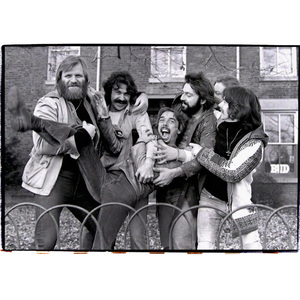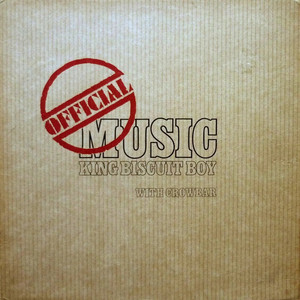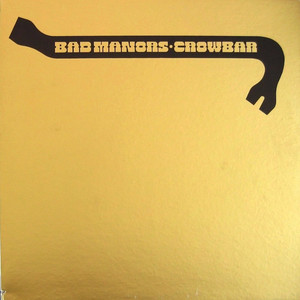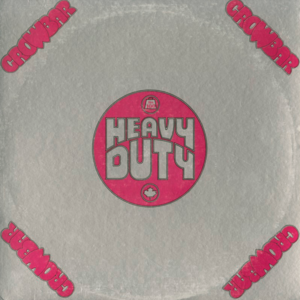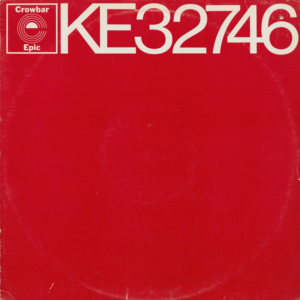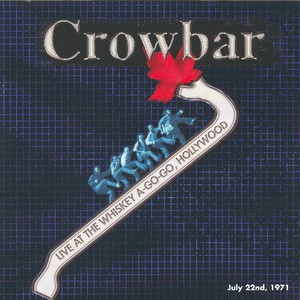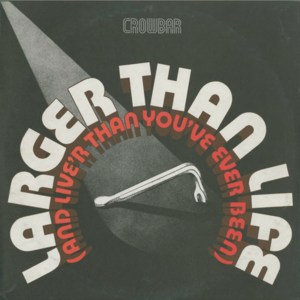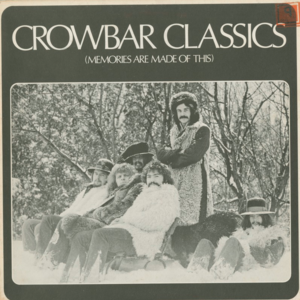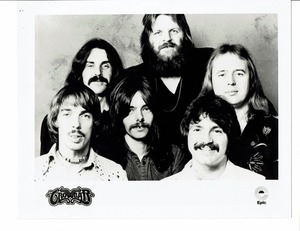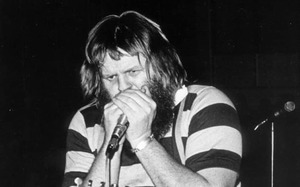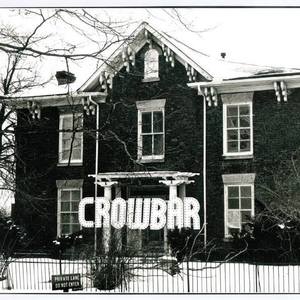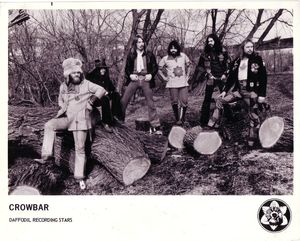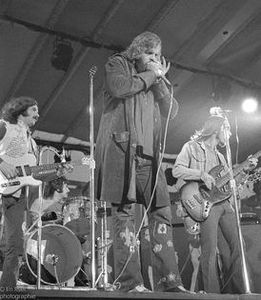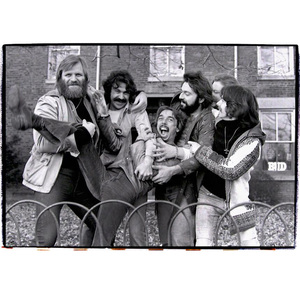Crowbar
Websites:
https://www.facebook.com/crowbartheband/about, https://www.thecanadianencyclopedia.ca/en/article/crowbar-emc
Origin:
Hamilton, Ontario, 🇨🇦
Biography:
Canada’s Crowbar is not to be confused with an American grunge band during the 90s of the same name. While in a local Toronto band called The Ascots, Roly Greenway and Rheal Lanthier decided a change was in order,so they packed up their bags and headed to Nevada, and for the next couple of years on a nightly basis they played various Vegas clubs, opening for the likes of Zsa Zsa Gabor and even Liberace. After growing tired of the scene, the group split up, returning to Canada and going their seperate ways. Greenway then hooked up with Bobby Curtola‘s touring band.
By ’69 he’d looked up Lanthier and they decided to reform the band, calling themselves this time The Royal Ascot Review. Also in the group was Kelly Jay, whose real name is Blake Fordham, and ex-Ronnie Hawkins‘ harmonica player, King Biscuit Boy (Richard Newell). But when Hawkins approached Newell to put together his new back-up band, The New Ascots became Ronnie Hawkins and Many Others, which also included guitarist John Gibbard, Richard Bell on keyboards, and Larry Atamaniuk on drums.
With Hawkins the band toured for the next year, appearing on bills with the likes of Mountain, Johnny Winter and Joe Cocker. But in the summer of 1970 amid a drunken ruckus in Hamilton, Hawkins fired the band, and consequently gave the band the idea for the name while screaming profanities at them. Before long the band was doing club dates in and around the Toronto area. Sonny Bernardi had replaced Atamaniuk on drums and Josef Chirowski was the new keyboards player after Bell had left, both new recruits having come from Ronnie Hawkins‘ camp and also ex of Grant Smith & The Power. Under the guise of King Biscuit Boy and Crowbar, they released their first album in 1970 called simply OFFICIAL MUSIC, the first cut on Frank Davies’ newly formed Canadian label, Daffodil Records. Newell’s blues roots were predominant on the record, and the only single released, “Corrina Corrina”.
Musical differences severed ties between Newell and the band the next year however, and Crowbar prepared for the next album. Recorded at Toronto Sound Studios, BAD MANORS was released in the spring of ’71. The first single epitomized the care-free hippie generation of the day, and “Oh What A Feeling” soared up the charts. This was the first single released after government regulations requiring Canadian radio stations to play one-third homegrown material had come into effect and would go down as one of Canadian rock’s most recognizable songs of the era. The single quickly reached gold here, but due to the drug annotations in the song, it didn’t receive airplay in the US. Other noteable songs included the ‘b’ side “Murder In The First Degree”, the cover of The Yardbirds’ “Train Kept a Rollin'” and the other singles “Happy People” and “Too True Mama”.
The band toured extensively in Canada and made their US debut at LA’s Whiskey A Go Go the next year. Management quickly decided to cash-in on the band’s popularity with a live album. Recorded at Massey Hall in that spring, LARGER THAN LIFE was the quintessential bar band caught live. It showcased the band’s blues roots and love for early rock and roll, evident in “Shake Rattle & Roll”, “Rock Around The Clock”, “Corrina Corrina” and “Tits Up On The Pavement”, a new tune about one woman’s life on the streets. A mere three weeks after it’s release, the album was certified gold. Though “Oh What A Feeling” was also on the album, it failed to chart in the US again because of its lyrical content. Not surpirsingly, the more liberal European audiences ate it up, spitting out gold in England.
HEAVY DUTY, recorded in Toronto, was released in late ’72 amid much angst among the loyal following the band had already established. Two singles were released “Hey Baby” and “Dreams”, though neither achieved the success expected. Also on the album was “The Eagle And The Beaver”, a politically incorrect song about our relationship with our southern neighbours, and “Dead Head From St John’s”, a track more typical of the crowd buying the albums.
One of the oddest arrangements in Canadian music occurred the next year. Pierre Trudeau was running for re-election as Prime Minister. His wife was a known Crowbar fan, and she asked the band to tour the country with Lucky Pete on the campaign trail. The bid to gain the youth vote worked, except in Alberta – where he’s still hated – years after his death. Trudeau was re-elected, Crowbar got some additional exposure, and Margaret moved on to The Rolling Stones. The over-whelming success of the band meant having to hire outside people to handle their affairs. Unfortunately, this meant MISmanagement of their funds.
The band went back into the studios in ’73, and released an album later that fall. Cleverly entitled KE32746 (the serial number), it was eagerly scooped up by fans. It included “Rocky Mountain Tragedy,” “Kilroy,” and “Million Dollar Weekend,” but the band broke up a year later. Following which saw Daffodil release the stereotypical compilation, THE BEST OF CROWBAR.
The members drifted off to do outside projects and after buying the rights to the music, Epic Records released another ‘best of’ package, MILLION DOLLAR WEEKEND, inspiring the band to get back together in the summer of ’77. After a few brief tours over the next couple of years, the band parted ways again. The resurgance of classic rock spawned the release of 2 ‘best of’ packages in ’92, MEMORIES ARE MADE OF THIS and BAD MANORS – GREATEST HITS, and the returned to touring again on occasion.
After suffering a major stroke a week earlier, Fordham died peacefully in a Calgary hospital on June 21, 2019. He was 77.
-Frank Davies, Kelly Jay Fordham
Crowbar. Rock band, formed in the summer of 1969 as And Many Others to accompany Ronnie Hawkins. Taking the name Crowbar, and making its base in Ancaster, near Hamilton, Ont, it left Hawkins early in 1970 after one LP and several US appearances, then backed individual members Blake 'Kelly Jay' Fordham, John Rutter and King Biscuit Boy on record. King Biscuit Boy's album Official Music and single 'Corrina, Corrina' were the most successful releases.
Personnel changes left Crowbar in 1971 with 'Kelly Jay' (vocals, keyboards, harmonica), Rheal Lanthier (lead guitar), John Gibbard (slide guitar), Josef Chirowski (replacing Richard Bell, keyboards), Roly Greenaway (bass guitar) and Sonnie Bernardi (replacing Larry Atamuniuk, drums). King Biscuit Boy continued as a frequent guest performer through 1971.
The most popular of Crowbar's singles were 'Oh What a Feeling' (1971) and 'Million Dollar Weekend' (1974). The band made three LPs 1970-2 for Daffodil - Bad Manors (SBA-16004), Larger than Life (And Liver than You'll Ever Be) (2-SBA-16007, recorded in concert at Massey Hall) and Heavy Duty (SBA-16013) - and one in 1973 for Epic, KE32746 (KE-32746). The compilation Crowbar Classics: Memories Are Made of This (SBA-16030) followed.
Crowbar's rousing rock, blues and boogie made it one of Canada's most popular touring bands of the early 1970s. It appeared in Great Britain but otherwise made little impact outside of Canada, perhaps the result of the strong nationalistic fervour that characterized its performances. Disbanded in 1975, it was revived in 1977 for a tour of eastern Canada and again by Kelly Jay and others intermittently during the 1980s for club work in southern Ontario.
